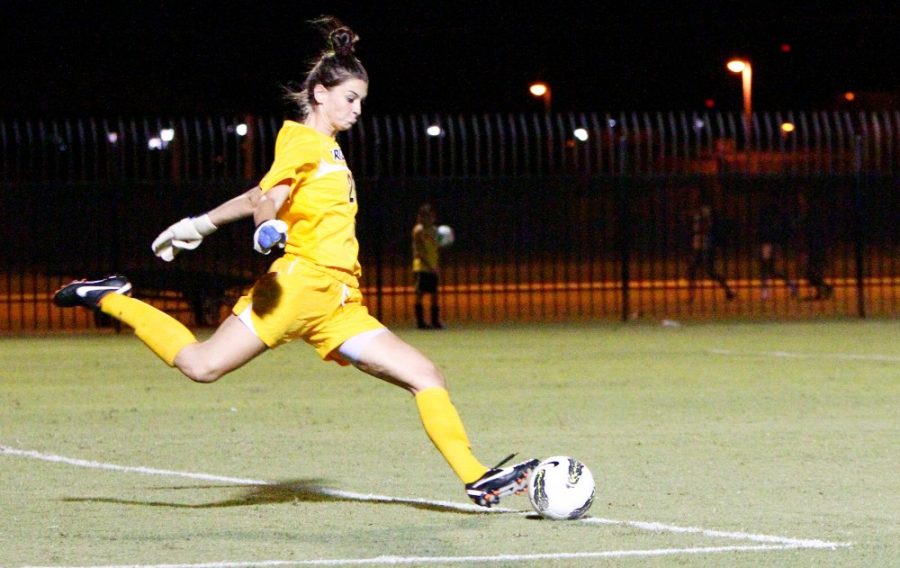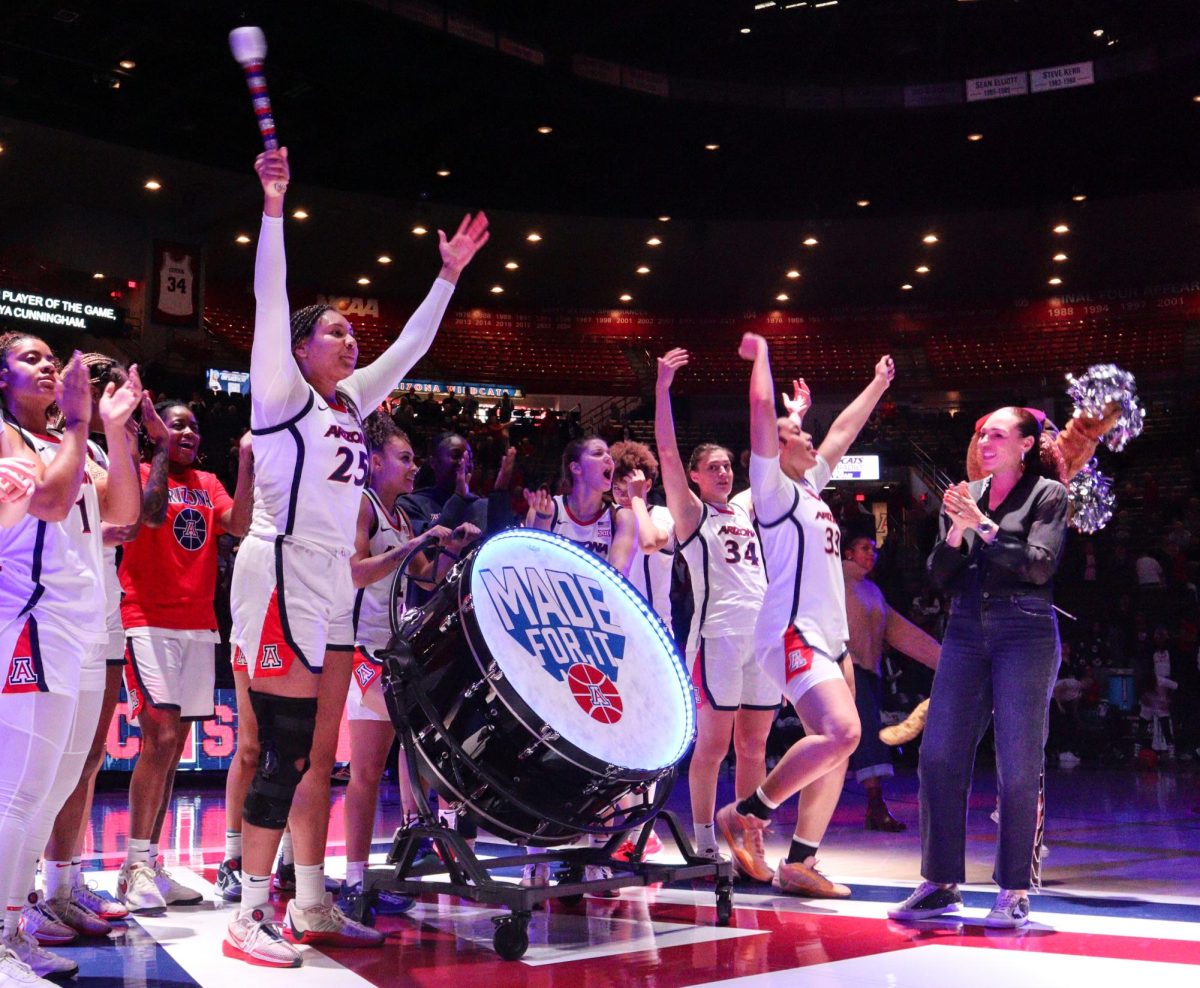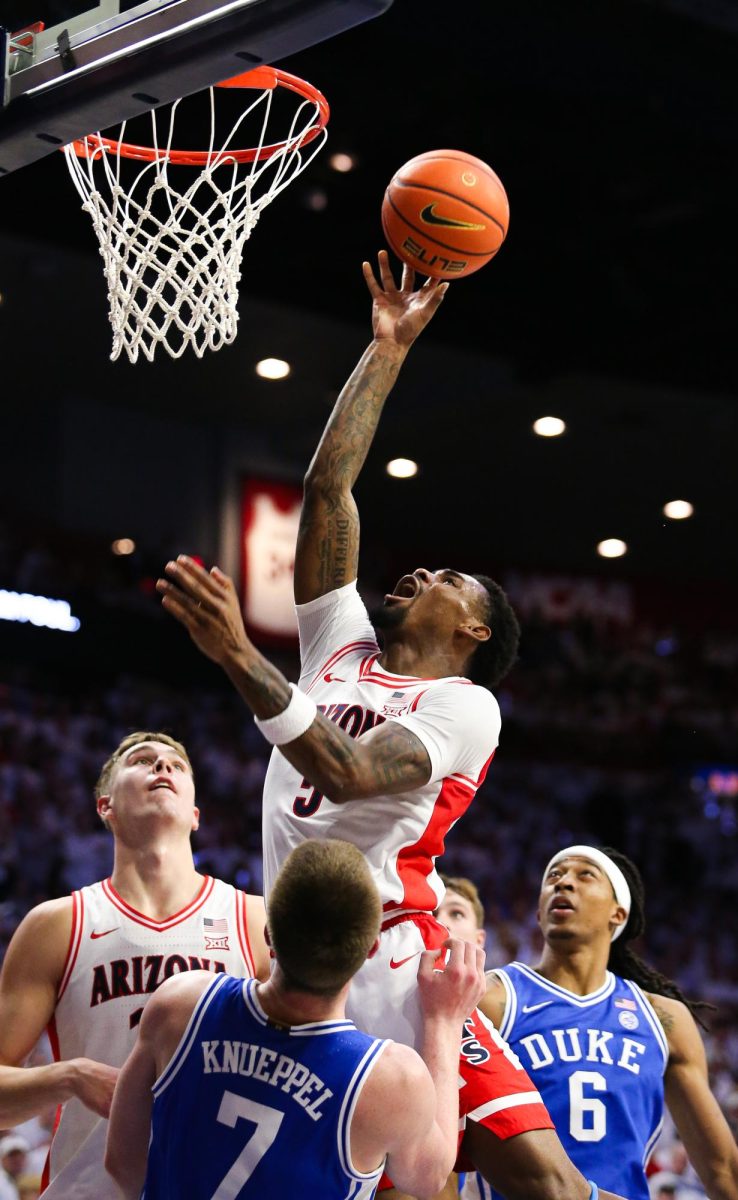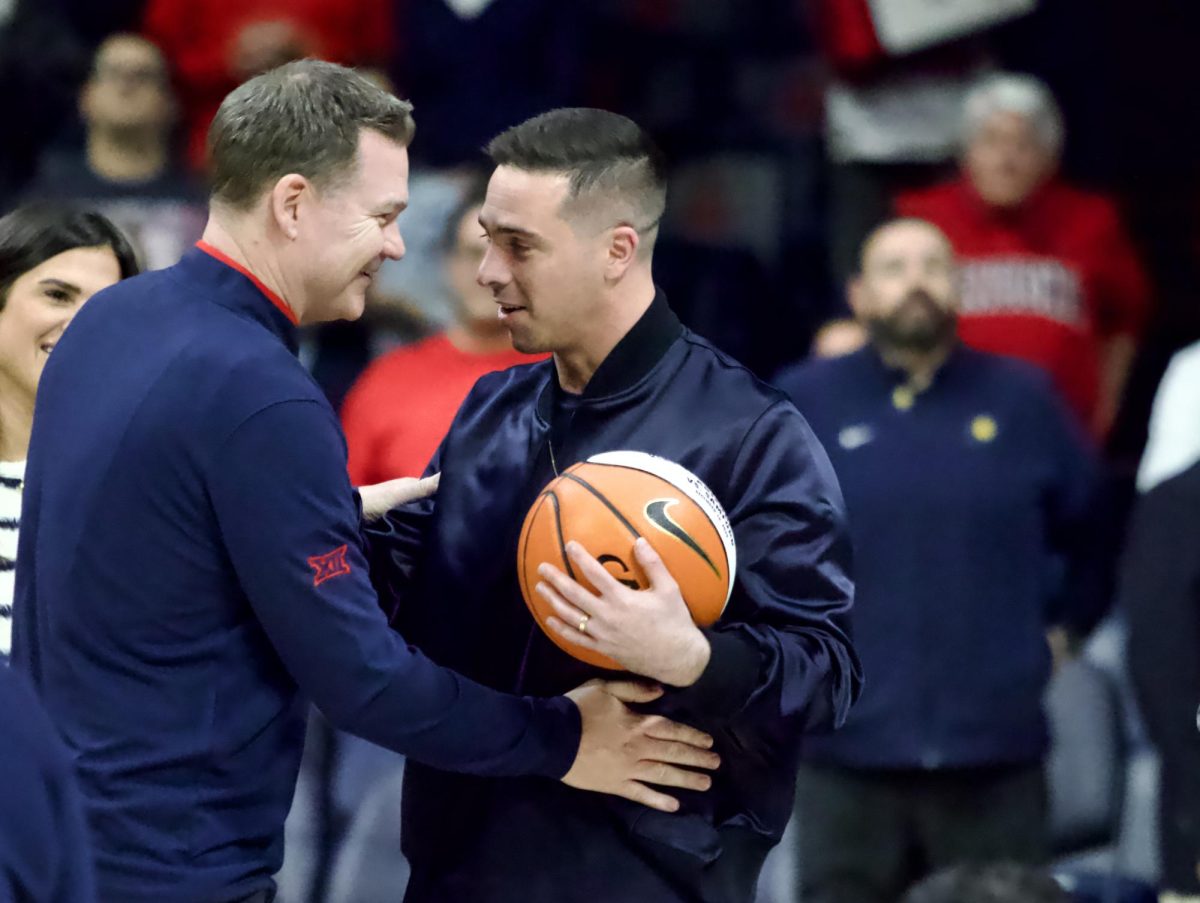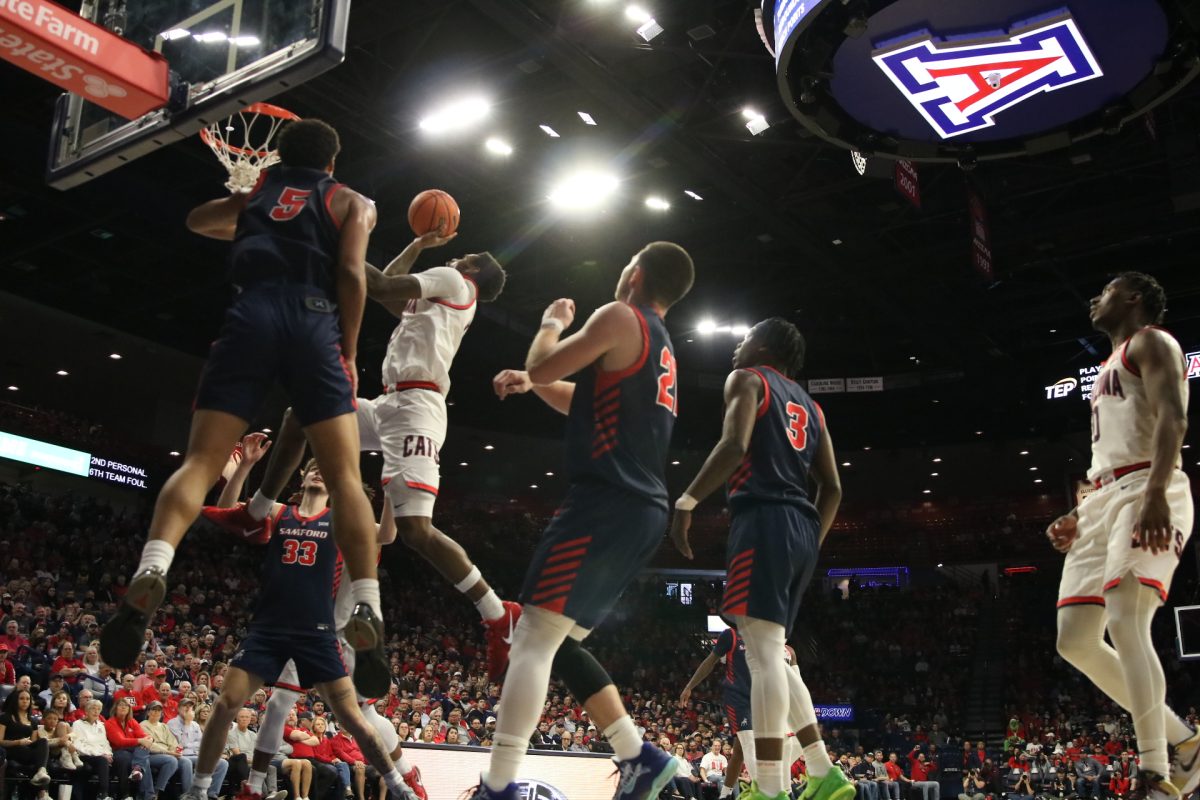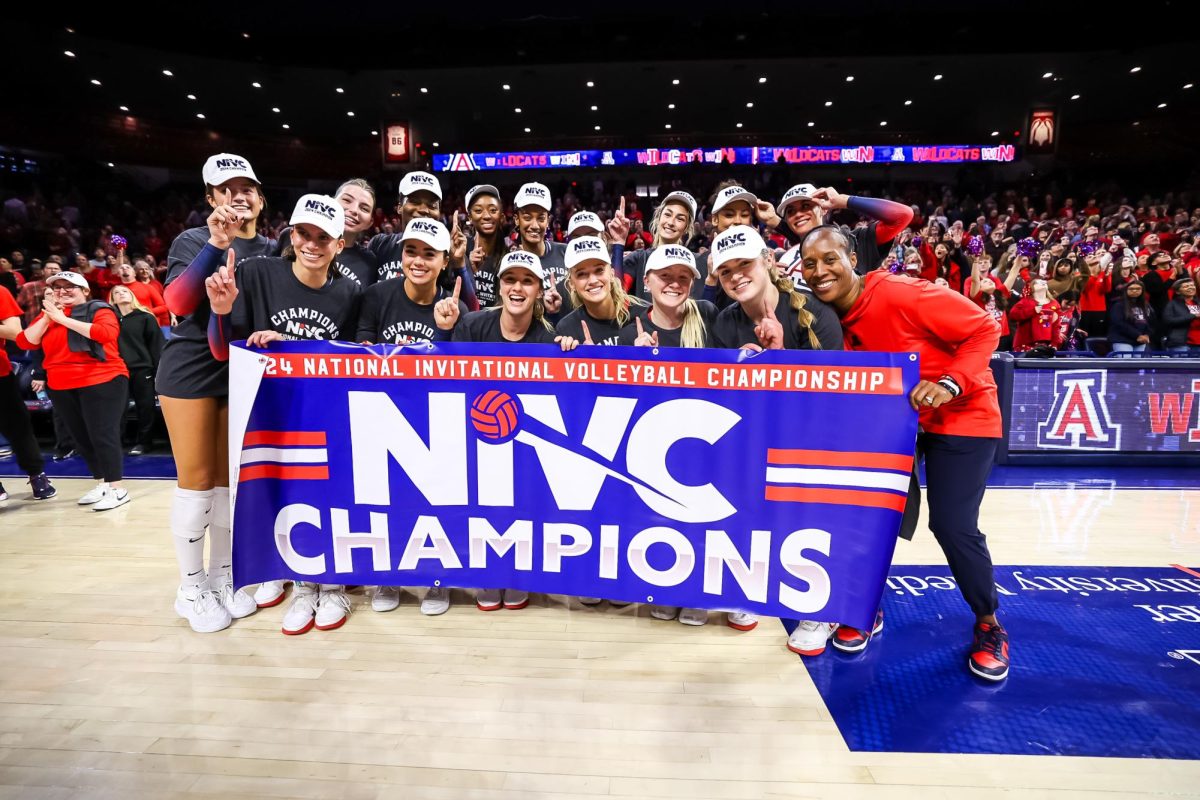Perhaps one of the more pressure-packed moments in sports is soccer’s penalty kick, taken in the case of a foul in the penalty box or if regulation ends in a tie.
While the kicker is in control of the ball, and thus has the advantage because they can choose where to put it, the goalkeeper has one simple choice — read and react as quickly as possible.
“(The advantage) definitely goes to the kicker,” said UA head coach Lisa Oyen. “The goalkeeper just kind of has to make a guess and try and make the save.”
Arizona’s soccer team knows it best. The Wildcats experienced penalty kicks in their season opener against San Diego State that left a bad taste in their mouth. The Aztecs scored on a penalty kick in the 68th minute after an infraction in the penalty box, and the Wildcats ended up losing that game 1-0.
Wildcat goalkeeper Ashley Jett said she looks at the kicker’s hips as she tries to determine the direction she will be lunging.
“If their (hips) are open, they are usually going to kick to the right if they’re right-footed,” Jett said. “If they are closed and you see their leg swinging back, then they are usually going to go to the left.”
Although Jett does have a strategy, Oyen said that it’s really a guess. Usually, the goalie will tend to go to whatever side they feel most comfortable.
Jett has the most experience at goal for the Wildcats, making 18 starts last season and tallying a conference-leading 104 saves. In three games this season, Jett has given up two goals in regulation, one in overtime, and another off of a penalty kick. In that span she has made 11 saves, and with each of those saves comes a shift in momentum.
“It’s huge,” Jett said of game-changing blocks. “If you block one out of five that’s great, though we’re not really expected to block any.”
Goalkeepers have been known to go to extremes to break the psyche of the kicker, throwing them off their game before their shots goes into motion. YouTube highlights include goalies doing cartwheels in the goal and coming out of the net, in front of the kicker.
“I don’t see that benefiting anything,” Jett said. “It doesn’t let me concentrate on what I’m trying to do, and it doesn’t let me try and read their body rhythms, so I personally don’t.”



